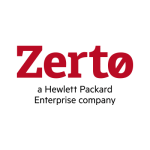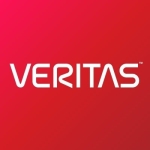The primary use case of this solution is for data protection, disaster recovery, and it's used as a backup database to restore the primary databases.
It gives the client comfort in case of any incidents, disaster or any catastrophic situation because it maintains, manages, and monitors the database and keeps a backup.
The most valuable features are the backup and restore. With this in place along with the clustering, the database is safe from hacking, hardware failure, power failures, and system crashes.
If anything were to happen you can immediately recall your data and bring your production server back to business.
It's flexible and easy to maintain because you are configuring your primary database and a standby database in one or more locations.
When the data replicates into the standby database there is a possibility of having a microsecond amount of data loss.
The data loss occurs when there is a network disconnection between the primary and secondary standby database located in the data centers or if there is a crash in the primary database.
The data is generated on the primary database which is configured to the standby database to duplicate it on a real-time basis. So if there is a system crash or disconnection and in the time it takes to get it back up, you can lose a microsecond amount of data.
When I experienced a small crash, I compared the data between the primary database and the standby database and found that there was a small difference in the amount of data. Not all of it was replicated or backed up.
It creates issues with synchronizing the data.
Because the focus in Data Guard is in the backup and restore, there hasn't been much with the interface.
In the next release, if there could be more focus on the interface to include add-on features that would be an added advantage going forward.
I have been using Oracle Data Guard for almost six years.
This solution is stable. We haven't experienced any issues with it.
The initial setup is straightforward. It's not complex.
The time it takes to deploy depends on how long it takes to replicate the primary database and to configure the standby database, but on average it can take a couple of hours.
You only need one or two people to maintain the system.
We are integrators and we implement the solution for our clients.
This solution is for small to medium-sized businesses, who can't afford to have two data centers or two servers.
Oracle Data Guard has many features to ensure that the database is in place. In case the primary database goes down or is corrupt in any way, you can recall the data immediately to restore the primary database.
It's important to know that backup is in place at any given time.
I would rate this solution a ten out of ten.
















